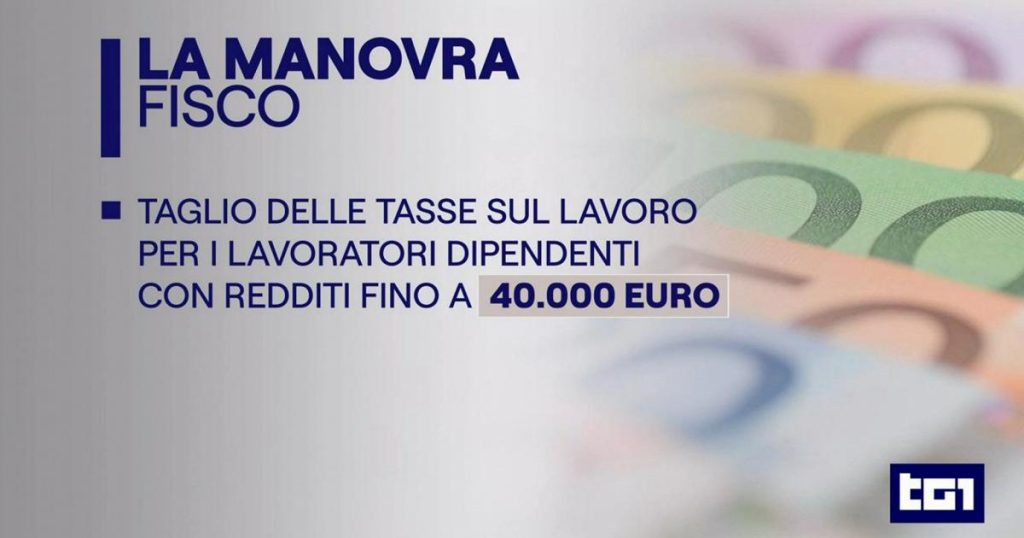The fiscal wedge reduction and the consolidation of personal income tax rates into three brackets are some of the confirmed measures in the 2025 budget, which has become law with the Senate’s approval. The focus is on the prudence advocated by Finance Minister Giancarlo Giorgetti: “A government that not only has the burdens of the Superbonus but also 90 billion in interest expenses to deal with cannot afford to be reckless or daring.” As the budget bill passed through the Chamber, it expanded its scope, introducing the Ires premiale tax credit, allocating resources for major infrastructure projects such as the Strait of Messina Bridge and the high-speed rail line (Tav). Additionally, a 100-million fund for local interventions, dubbed the “bribe law,” was included.
One of the key features of the 2025 budget is the reduction of the fiscal wedge and the simplification of personal income tax rates into three brackets. This measure, along with initiatives such as the bonus for new mothers, aims to support families and stimulate economic growth. Finance Minister Giancarlo Giorgetti emphasized the importance of prudence in managing the government’s finances, especially in light of the high interest expenses the state is facing. The budget, totaling 30 billion euros, also includes provisions for tax incentives such as the Ires premiale, funding for major infrastructure projects like the Strait of Messina Bridge and the Tav, and a 100-million fund for local interventions.
With the Senate’s approval, the 2025 budget has officially become law, enacting various measures to support families and boost economic growth. Finance Minister Giancarlo Giorgetti’s emphasis on prudence in managing the government’s finances reflects the challenges the state faces, including significant interest expenses. The budget bill, which expanded to 30 billion euros during the Chamber’s review, includes provisions for tax incentives such as the Ires premiale, funding for major infrastructure projects like the Strait of Messina Bridge and the Tav, as well as a 100-million fund for local interventions dubbed the “bribe law.”
The 2025 budget law includes a range of measures aimed at supporting families and stimulating economic growth, such as the reduction of the fiscal wedge and simplification of personal income tax rates into three brackets. Finance Minister Giancarlo Giorgetti stressed the importance of prudence in managing the government’s finances, given the substantial interest expenses the state is facing. The budget also provides for tax incentives like the Ires premiale, funding for key infrastructure projects such as the Strait of Messina Bridge and the Tav, and a 100-million fund for local interventions known as the “bribe law.”
The 2025 budget law, which has been approved by the Senate and enacted, includes various measures to support families and promote economic growth. Finance Minister Giancarlo Giorgetti’s cautious approach to managing the government’s finances reflects the challenges posed by significant interest expenses. The budget bill, which expanded to 30 billion euros during the Chamber’s review, encompasses provisions for tax incentives like the Ires premiale, funding for major infrastructure projects like the Strait of Messina Bridge and the Tav, and a 100-million fund for local interventions dubbed the “bribe law.”
In conclusion, the 2025 budget law includes a range of measures to support families and stimulate economic growth, including the reduction of the fiscal wedge and the simplification of personal income tax rates. Finance Minister Giancarlo Giorgetti’s emphasis on prudence in managing the government’s finances, especially given the significant interest expenses, highlights the need for careful financial management. The budget bill, now law, allocates resources for tax incentives, major infrastructure projects, and local interventions to drive economic recovery and strengthen the country’s financial position.


